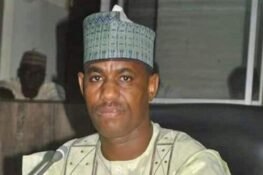Prime Minister Abiy Ahmed has his hands full.
In Ethiopia, war has appeared to be on the horizon for some time.
It is ironic that it is under a prime minister who has been awarded Nobel Peace Prize for pursuing peace with a longtime rival of his country that Ethiopia is battling with the biggest security threats in decades, both internally and on the international stage.
Both the internal crisis, which many are already predicting could lead to another civil war and the international conflict with regional powers over water, have the potential to drag down the economies of most the region.
A few weeks ago, he was standing firm against what appeared to be a threat voiced out by US President Donald Trump that Egypt will not be able to live with, and would probably blow up the Grand Renaissance Dam, in which Ethiopia has invested $4bn.
It is possible that Egypt which depends on the River Nile for virtually all of its water needs has for centuries seen the Nile as its property.
Yet, it runs through several country, with Ethiopia; where 85 of the Nile water flows from, and Sudan just as dependent on the fresh water of the Nile.
That Ethiopia went ahead and built the dam of a period of close to 10 years and in spite of American objections is testimony to the changing politics on the continent
This is a dispute that has its roots in a colonial era agreement, which virtually ceded all rights of the Nile river to Egypt.
Since 1929, when the document giving Egypt veto power over the Nile, Africa has changed.
The fact that Ethiopia went ahead and built the dam of a period of close to 10 years and in spite of American objections is testimony to the changing politics on the continent.
With Ethiopian now beginning to fill up the dam, the biggest in Africa, millions of livelihoods in both Egypt and Sudan will be affected.
While the dam will help Ethiopia, it also threatens to throw millions of people in North Africa into poverty and possibly destabilise the entire region.
The tone of the US president that Egypt had to do something made it seem he was encouraging the idea that they blow up the dam.
Knowing Donald Trump and his tendency to leak national security secrets, he wasn’t just voicing an opinion, but a real possibility that is in the works by Egyptian Armed Forces and was in actual fact trying to draw Ahmed Abiy back to the negotiating table.
The prime minister’s response was that Ethiopia would not cave in to aggressions of any kind.
The question should be why Ahmed is so confident his country can take on Egypt militarily, to the extent of angering a US president.
Even more crucial is whether Ahmed has been taken captive by his own Armed Forces who are obviously deeply involved in setting the course of Ethiopia’s foreign policy, and now in managing domestic political differences between rival ethnic groups.
As menacing as an attack by Egypt seems, Ahmed now has bigger problems on his hands with civil war looming.
For several days now, the Ethiopian military and the Tigrayans People’s Liberation Front, which leads a regional government have been attacking one another.
In a few short days, the conflict has already led to a humanitarian disaster, which appears to be getting worse with each passing day.
The military operations against the Tigrayan region are bound to make matters worse, for Ethiopia, Africa and maybe half of the world that will have to contend with a displaced population
Hundreds have already been killed and thousands have fled their homes, with refugees already pouring into Sudan and a third country, Eritrea being dragged into what would normally be an internal conflict.
In a country of about 80 different tribes and three major ethnic groups, there are reports that people of certain tribes are being hunted or rounded up.
Communications in the northern region of the country have been cut off.
Both the government and the Tigrayan Liberation Front are trading accusations.
But what is going on in Ethiopia right now seems to have caught the entire world flatfooted.
Publicly, Donald Trump and the US Government have haven’t shown too much concern to the unfolding events in the country.
The most the African Union has been able to do is call for a ceasefire and urge for talks.
The European Union has acted with a sense urgency in trying to deescalate the situation and bring an end to the military offensive by the federal government on the Tigrayan region.
The EU sent a delegation and has offered every kind of assistance.
But even they may have acted too late because the real problem in Ethiopia is its constitution, which has been in place for decades and pits one ethnic group against another.
The worse thing about Ethiopia’s ethic federalism is that a majority of its citizens have invested their hearts and passions in and many are willing to die to protect the regional autonomy of their ethnic groups.
That in part is why Abiy Ahmed is facing resistance in the attempts to turn the country into a unitary system of government.
The resistance is also about a Tigrayan nation that is watching while its influence is slowly reduces.
It is like Serbia all over again.
So, how did a Nobel Prize winning prime minister suddenly evolve into a war time leader?
How did a prime minister who emerged under the platform and tutelage of the minority ethnic group that dominated the military and politics for three decades end up becoming their sworn enemy?
For one, the country was always set up to be in perpetual conflict because of how it is divided into regions based on ethnic identity.
The military operations against the Tigrayan region are bound to make matters worse, for Ethiopia, Africa and maybe half of the world that will have to contend with a displaced population.
Military repression with combination minority rule kept regional ambitions in check in the past, but the divisions didn’t go away.
And the problems will persist as long as geography and ethnicity are the basis for creating regional governments.
At least in the long run, this is a crisis that can only be solved through constitutional changes.
And the only way to do that is through a negotiated political agreement. Whether or not Abiy Ahmed and the Ethiopian military are distracted by an internal resurrection, they still have Egypt and Sudan to contend with.








